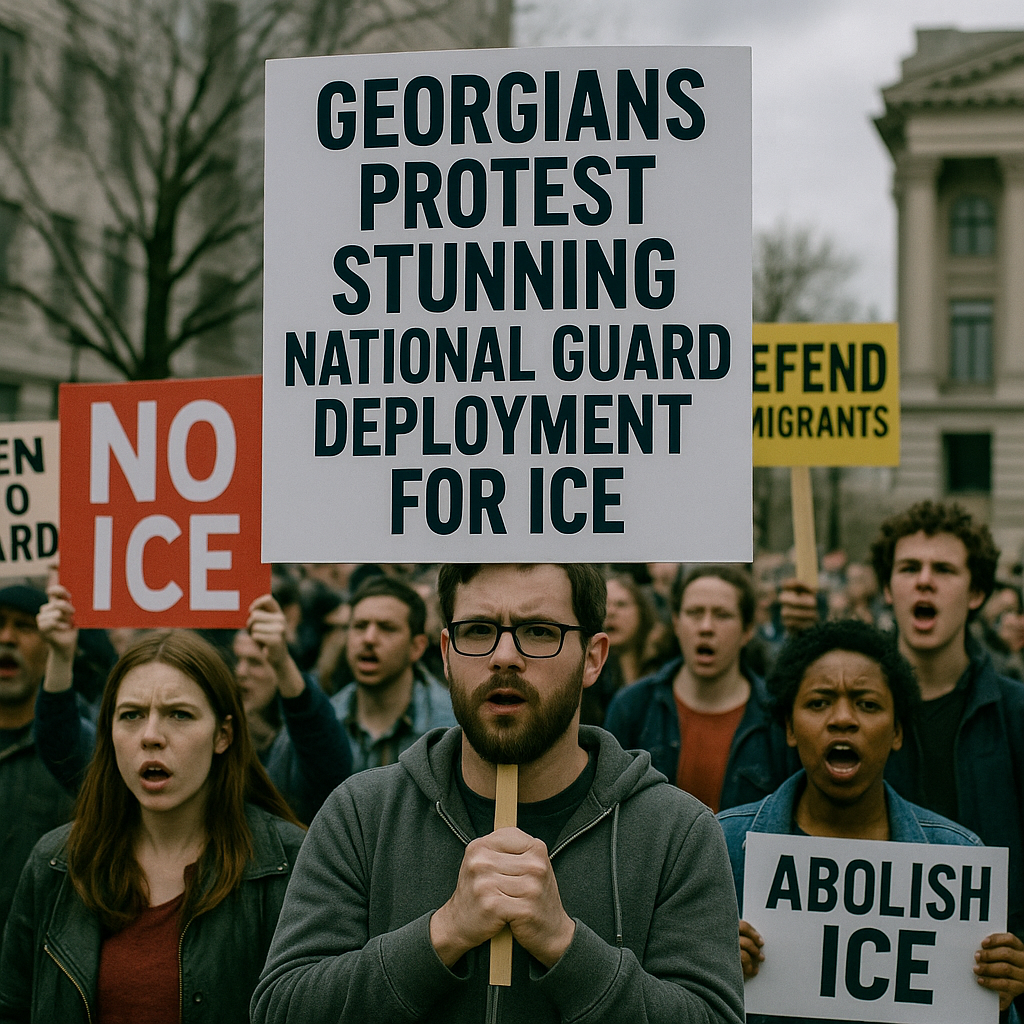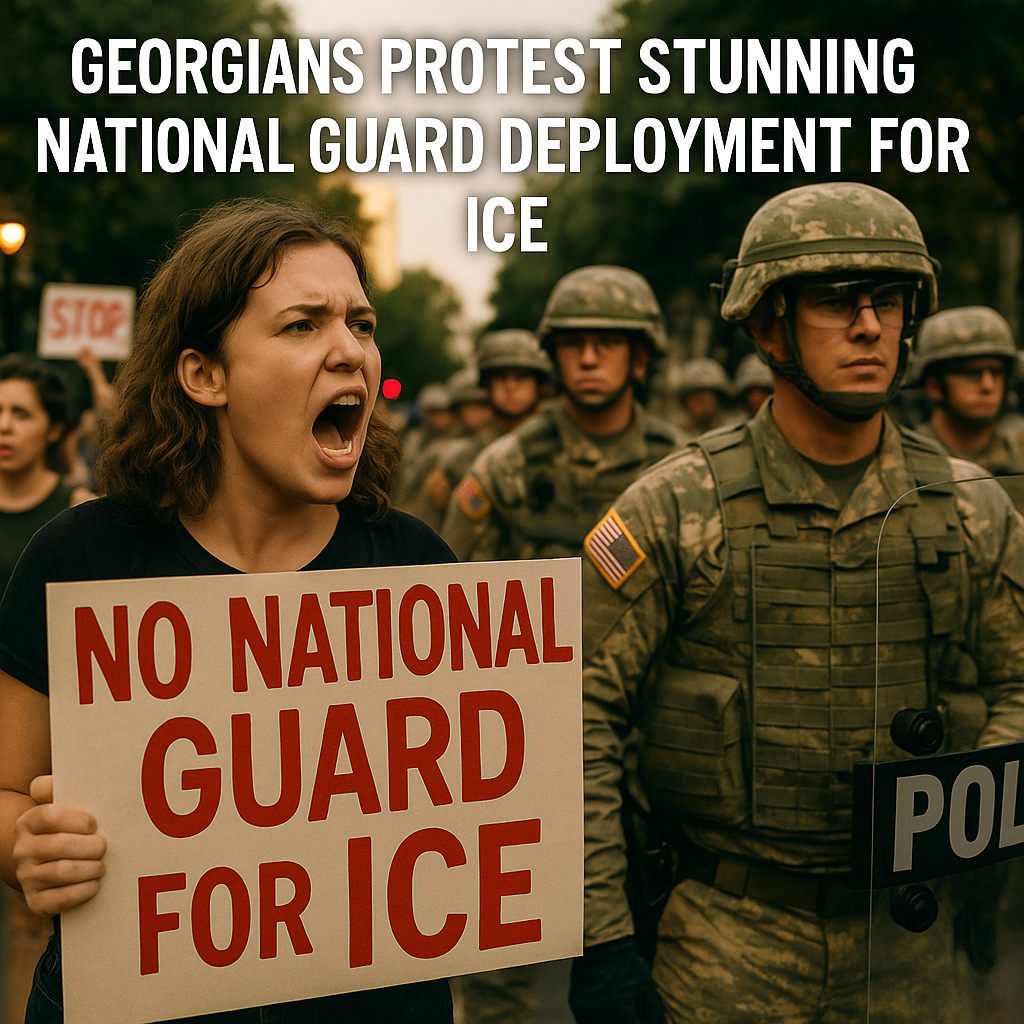Georgians Protest Stunning National Guard Deployment for ICE
Georgians Protest Stunning National Guard Deployment for ICE
Georgians protest the recent deployment of the National Guard for Immigration and Customs Enforcement (ICE) operations, reflecting a deep sense of injustice within the community. This move, orchestrated by Governor Brian Kemp, has sparked heightened tension among various groups, drawing attention to the broader implications of such military involvement in civil enforcement.
The Background of the Deployment

The current situation is rooted in a series of legislative moves by the Georgia state government. Governor Kemp’s decision to deploy the National Guard aims to bolster ICE operations, ostensibly to tackle illegal immigration and enhance public safety. However, critics argue that the deployment represents an overt attack on immigrant rights and civil liberties, positioning the National Guard as a tool of intimidation.
Local activists warn that the presence of armed troops in communities will only escalate fears among immigrant populations, who may already be grappling with various challenges. Demonstrators have rallied against the deployment, emphasizing the need for comprehensive immigration reform rather than militaristic approaches to a complex social issue.
Diverse Perspectives on National Guard Involvement
The deployment has prompted a variety of responses from both supporters and detractors. Proponents of the National Guard’s role in this facet of enforcement cite public safety concerns. They contend that implementing a robust enforcement mechanism through the National Guard will deter illegal activities.
Conversely, civil rights organizations and a significant portion of the local populace dispute this rationale. They argue that expanding the role of the National Guard in civil matters blurs the line between military and civilian law enforcement, risking the erosion of public trust. Activists view this as reminiscent of historical injustices where military power has been misused against marginalized communities.
Voices from the Ground: Protest Dynamics
The protests emerging in response to the National Guard’s deployment reveal a mosaic of emotions and convictions. Some demonstrators have shared personal experiences that underline the fear and anxiety communities feel amidst such militarization. “This is not just about politics; it’s our lives at stake,” one protester noted during a recent rally in downtown Atlanta. Such sentiments resonate deeply, showcasing the human element often lost in policy discussions.
Furthermore, the protests serve as a platform for broader advocacy for immigrant rights and community safety measures that prioritize compassion over force. Many activists are advocating for strategies that foster engagement and dialogue rather than reliance on military presence, which they believe perpetuates cycles of fear.
The Complexity of Immigration Enforcement
The controversy surrounding the National Guard’s deployment does not exist in a vacuum. It reflects an ongoing national debate about immigration policy, civil rights, and community safety. Some analysts assert that placing military personnel in these roles may yield short-term enforcement results but leads to long-term community fractures that are difficult to mend.
While some sources maintain that increasing military presence could vindicate concerns around crime and safety, the dissenting opinion emphasizes the risks of alienating immigrant communities, many of whom contribute significantly to Georgia’s socio-economic fabric. The question arises: Are militarized approaches genuinely beneficial to community integrity, or do they erode the very trust that fosters cooperation?
Uncertain Outcomes
As protests continue to evolve, observing the long-term impacts of this deployment will be crucial. The sentiments people hold towards immigration, safety, and the militarization of civil law enforcement expose deep-rooted tensions in American society. This complexity invites further dialogue to address systemic issues surrounding immigration reform, civil liberties, and the role of military forces within communities.
While government officials may assert that the deployment serves a sound strategy for mitigating illegal immigration, opponents are equally fierce in underscoring the potential for harm. Without clear communication and strategies that address the needs of all citizens—including those within immigrant communities—these protests underline a critical turning point in how society approaches issues of immigration and civil rights.
In conclusion, the large-scale protests against the National Guard’s deployment for ICE operations in Georgia highlight the urgent need for a more compassionate and thoughtful approach to immigration policy. As citizens voice their dissent, the conversation around immigrant rights and community safety promises to evolve, reflecting the diverse perspectives that define the ongoing debate.















